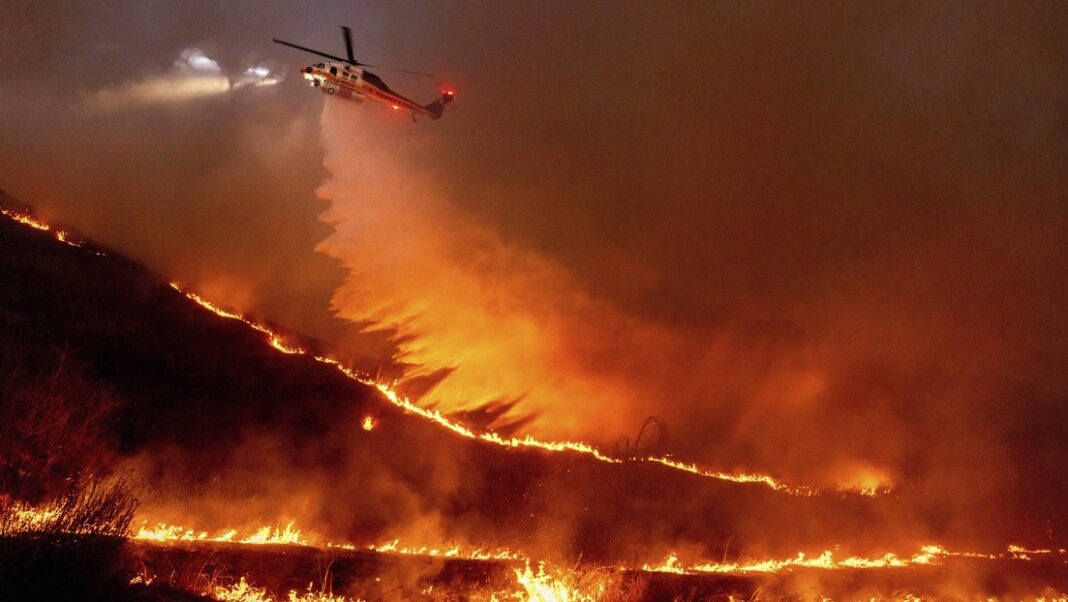Los Angeles is battling one of the most destructive wildfire seasons in its history. Unrelenting flames have swept across vast stretches of land, reducing vibrant landscapes to smoldering ruins. Propelled by fierce winds and exacerbated by prolonged drought conditions, these wildfires have forced thousands to flee their homes, leaving entire communities displaced and grieving.
Beyond the visible destruction, the fires have pushed air quality to hazardous levels, posing severe health threats, particularly to children, the elderly, and those with respiratory conditions. Local authorities have declared a state of emergency, yet the sheer magnitude of the disaster has overwhelmed available resources, leaving many wondering when relief will come.
– A Herculean Struggle –
Firefighters are working tirelessly to contain the infernos, but the battle is far from over. Steep terrain, soaring temperatures, and relentless winds have made their mission extraordinarily challenging. Meanwhile, shelters are overflowing with evacuees seeking safety and solace after losing everything.
Humanitarian organizations are stepping in to provide much-needed aid, but the strain on resources is evident. The crisis has also reignited conversations about the role of climate change in intensifying natural disasters. Scientists emphasize that the conditions fueling these wildfires—drought, heatwaves, and high winds—are becoming more frequent and severe as global temperatures rise.
– Lessons in Resilience –
This disaster underscores the urgent need for systemic changes. Experts advocate for stronger wildfire prevention strategies, including improved infrastructure, better resource allocation, and policies that address the root causes of climate change. Communities must prioritize sustainable practices to minimize the impact of future disasters.
For Los Angeles, the road to recovery will be long and arduous. However, this tragedy presents an opportunity to rebuild with a focus on resilience and sustainability. By learning from this calamity, the city can set an example for others facing similar threats.
– The Global Implications –
The devastation in Los Angeles serves as a stark warning to the rest of the world. As climate-related disasters become increasingly common, governments and individuals must act decisively to combat environmental degradation. Failure to do so will only result in more lives lost and ecosystems destroyed.
In the face of adversity, Los Angeles must rise from the ashes with renewed determination and a commitment to safeguarding its future.
“If you enjoyed this article, share it with your friends or leave us a comment!”






